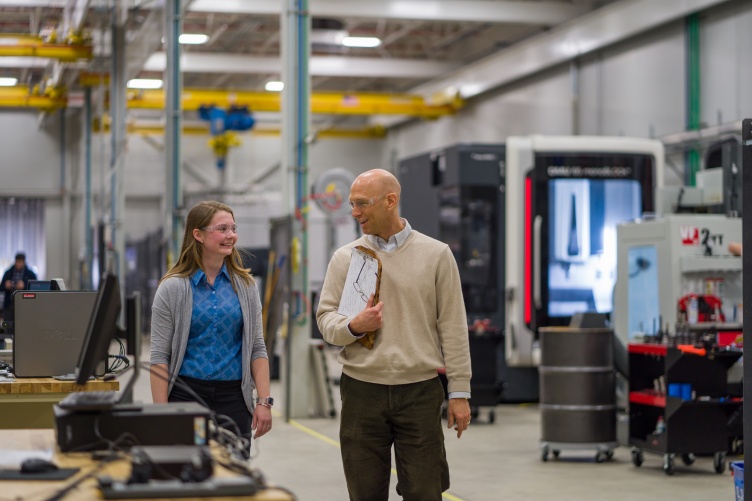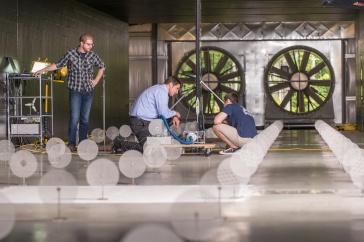
Imagine being tens or even hundreds of thousands of miles from Earth and needing a specific part vital for a space endeavor. Now imagine instead of having to return to Earth or needing another launch to deliver that part, you could manufacture it right on board or on your moon colony.
To help explore that potential reality, researchers from UNH’s John Olson Advanced Manufacturing Center were awarded a $300,000 grant to research the new paradigm of in-space manufacturing. Specifically, they are tasked with identifying barriers to commercializing a space-based manufacturing economy, recommend solutions and develop guides that will help strengthen U.S. leadership in space, economic growth and national defense.
“In-space manufacturing is a nascent area of scientific and national importance,” says professor Brad Kinsey, who is the principal investigator and will be joined in the effort by UNH’s John Roth, director of the John Olson Advanced Manufacturing Center.
The award was part of the U.S. Department of Commerce’s National Institute of Standards and Technology (NIST) Advanced Manufacturing Technology Roadmap program that awarded just over $2 million to 11 organizations to develop manufacturing roadmaps to strengthen U.S. innovation and productivity across entire industry sectors.
In its mission to identify barriers, UNH will partner with NASA, the University of Alabama and Purdue University, while collaborating with Physical Science Inc. and Southwest Research Institute to help set the scope and execute four workshops that will investigate the technical issues over the next 18 months.
Kinsey sees the award as a steppingstone to establishing the Olson Center, and UNH, as emerging leaders in in-space manufacturing. The team has already applied for additional funding to conduct in-space manufacturing research projects and participated in a decadal survey — a 10-year-or-more planning outline for scientific missions and goals — submission for NASA focused on in-space manufacturing.
“The strength of UNH with respect to space science, coupled with the enabling technologies of in-space manufacturing, will assure that UNH is well position to positively contribute to this emerging frontier,” says Kinsey.
The potential to manufacture in space could also help address the issue of “space junk,” which consists of manmade objects in space that are no longer functional, such as decommissioned satellites. Kinsey says there are already discussions around using these metals to create new parts through, for example, incremental forming, an area that the Olson Center specializes in.
Each NIST award will engage stakeholders in industry, government and academia to identify and prioritize research projects that reduce barriers to the growth of advanced manufacturing in the U.S. The resulting roadmaps will identify and rank research and development goals; address workforce skills gaps; promote diversity, equity and inclusion in manufacturing; and identify steps to speed technology development and transfer to improve U.S. manufacturing competitiveness.
-
Written By:
Brooks Payette | College of Engineering and Physical Sciences



















































